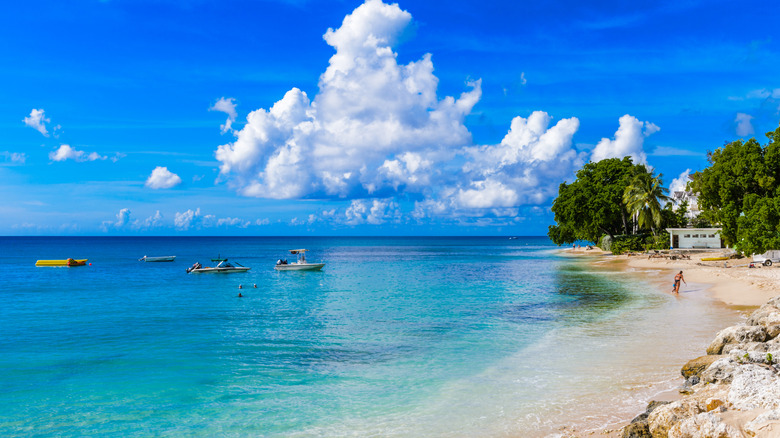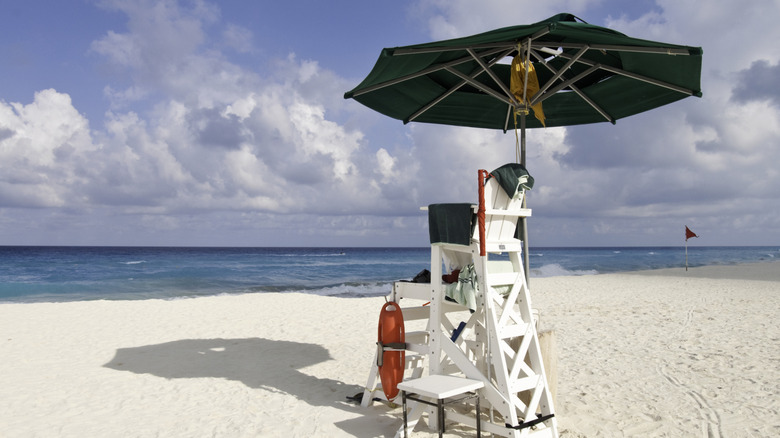The Crucial Safety Warning For Caribbean Beaches Every Traveler Should Know Before Swimming
If you love crystal-clear waters, unbelievable scenery, and a tropical climate, you'll fit in well vacationing in the Caribbean. In fact, few things in life feel as luxurious as a Caribbean beach holiday. When you shut your eyes, you can picture it clear as day: turquoise waters, the sun glowing in the sky, and warm sand between your toes; it's an inviting scene, especially for those who love a dip in the sea. The lure of the crystal-clear water, gentle waves, and seemingly endless horizon can make anyone want to just dive right in.
But the image might not be as tranquil as you expect. Did you know that swimming at many Caribbean beaches comes with hidden dangers, since lifeguards aren't always on duty? This means there's no one watching the water for sudden rip currents, strong undertows, or sharp drop-offs. Even on a calm day, the sea can surprise even the strongest of swimmers. Coral, rocks, and hidden reefs all lie just below the surface. And while jellyfish aren't everywhere, encounters are not uncommon, especially in warmer months.
For tourists used to supervised and patrolled beaches at home, the lack of lifeguards can be a shock. What might seem like a normal swim at first can quickly turn risky if currents pull you farther out than you realize or if you step on sharp coral. It's always important to be alert: what looks safe from the shore isn't always safe in the water, and when it comes to sea safety, it's always better to be safe than sorry.
How to safely swim at Caribbean beaches
You don't have to let the idea of a perfect Caribbean beach fade just yet; there's still a way to enjoy it safely without losing any of the fun. The most important thing is to never swim alone when at an unsupervised beach. Having someone with you makes it easier to handle unexpected currents or sudden waves. Plus, it's always reassuring to have someone nearby. And even if the beach looks calm, rip currents can appear from nowhere, so it's always wise to stay close to shore and within areas that locals know are safest. A lot of beaches will have buoys marking areas that are safe for swimming, so stay within these areas.
More practical tips include wearing water shoes. Coral, rocks, and reefs can catch your feet and cause painful cuts or scrapes. Also, always keep an eye out for any posted warnings about marine life, like jellyfish, and check local weather conditions before swimming (for spotting marine life, head to these lesser-known Caribbean islands). And while that tropical cocktail might be tempting (you're on vacation, after all), don't drink before getting in the water; the last thing you want is impaired judgment when the water gets tricky.
But the safest tip of all? Stick to beaches that have lifeguard supervision. The Red Cross recommends only swimming in seas where trained staff are keeping watch. That way, you can focus on soaking up the sun, enjoying turquoise waters, and exploring coral reefs. You don't want to worry about turning your perfect beach day into a cautionary tale.

